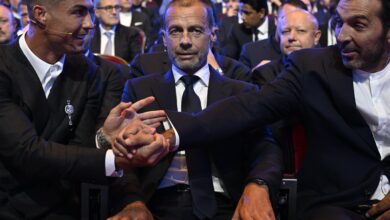Read More About Manchester City Head Coaches

Manchester City Football Club, one of the most successful football clubs in England, boasts a rich history of managers who have shaped its evolution. From humble beginnings to becoming a powerhouse in world football, the role of the head coach has been pivotal in defining the club’s trajectory. This essay explores the legacy of Manchester City’s head coaches, highlighting their contributions and the periods of transformation under their stewardship.
Early Years and Foundation
Founded in 1880 as St. Mark’s (West Gorton), Manchester City adopted its current name in 1894. In its formative years, the club had a series of managers who operated under less formalized roles compared to today’s standards. Tom Maley, who managed the club from 1902 to 1906, is considered one of the earliest influential figures. Under Maley, City won their first major trophy, the 1904 FA Cup, signaling their arrival on the national stage.
Post-War Period and Challenges
The mid-20th century saw Manchester City experience fluctuating fortunes. The post-war period introduced notable managers such as Les McDowall (1950–1963), the longest-serving manager in the club’s history. McDowall oversaw an innovative team that reached consecutive FA Cup finals in 1955 and 1956, winning the latter in a thrilling match against Birmingham City. His tactical ingenuity, including the “Revie Plan,” was ahead of its time, even though consistency eluded the team.
The Mercer-Allison Era: A Golden Age
Joe Mercer and Malcolm Allison formed one of the most iconic managerial partnerships in Manchester City’s history. Mercer, appointed in 1965, revitalized the club with Allison as his assistant. Together, they built a formidable team that claimed the First Division title in 1968, along with the FA Cup in 1969 and the European Cup Winners’ Cup in 1970. This era remains a benchmark of success and innovation for City, characterized by attacking football and a cohesive squad featuring legends such as Colin Bell and Francis Lee.
Decline and the Managerial Carousel
The late 1970s and 1980s marked a turbulent period for Manchester City. The club endured relegations, financial instability, and frequent managerial changes. Coaches like John Bond and Peter Reid brought moments of hope, but sustained success proved elusive. The instability during this era underscored the need for strategic leadership and long-term planning.
The Modern Revival
Manchester City’s fortunes began to change in the early 2000s with the managerial appointment of Kevin Keegan (2001–2005). Keegan guided the club back to the Premier League and introduced a more attacking style of play. However, it was the acquisition of the club by the Abu Dhabi United Group in 2008 that marked the start of a new chapter. Roberto Mancini, appointed in 2009, ended the club’s 35-year trophy drought by winning the FA Cup in 2011. A year later, Mancini delivered the Premier League title in dramatic fashion, with Sergio Agüero’s iconic last-minute goal against Queens Park Rangers.
The Guardiola Era: A Dynasty in the Making
Pep Guardiola’s appointment in 2016 heralded an unprecedented era of dominance. With his meticulous tactics and a philosophy centered on possession and high pressing, Guardiola has transformed Manchester City into one of the world’s best teams. Under his leadership, City has won multiple Premier League titles, including the record-breaking 2017–2018 season, where they amassed 100 points. Guardiola also led City to their first UEFA Champions League title in 2023, cementing his legacy as the most successful manager in the club’s history.
Conclusion
The journey of Manchester City’s head coaches reflects the club’s evolution from a regional contender to a global footballing powerhouse. Each manager has contributed uniquely to the club’s story, whether by laying foundational stones, navigating challenging periods, or delivering historic triumphs. Today, Manchester City stands as a testament to the impact of visionary coaching, with its head coaches shaping not only the team’s fortunes but also its identity.




